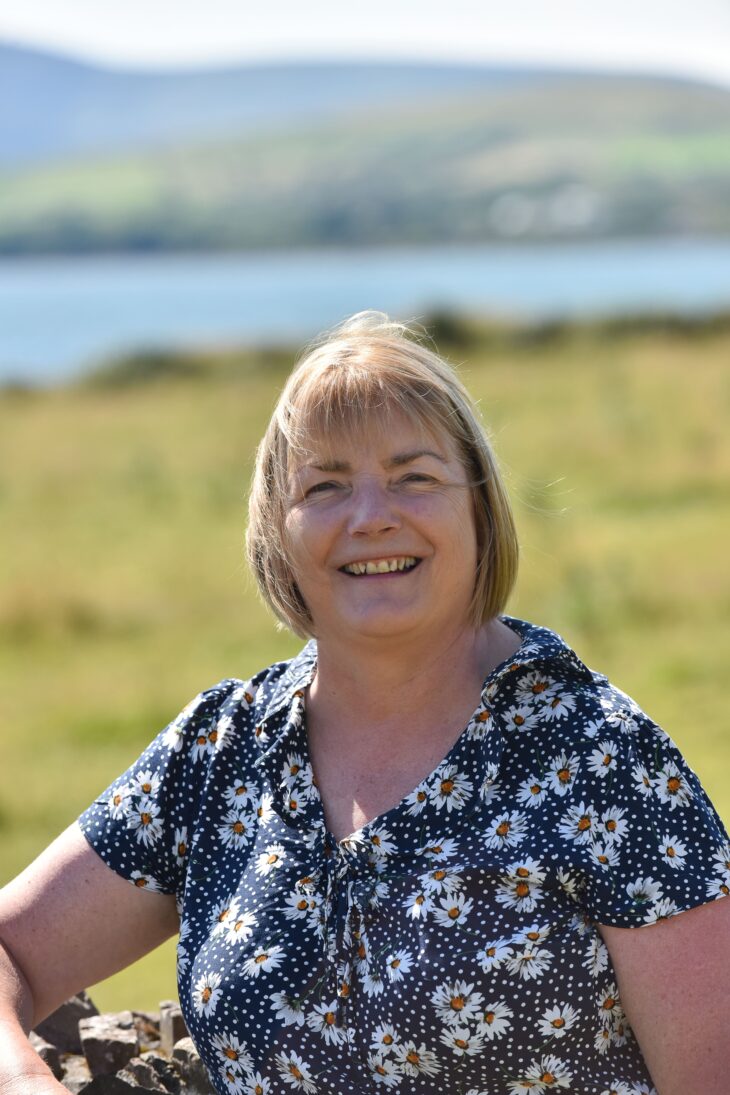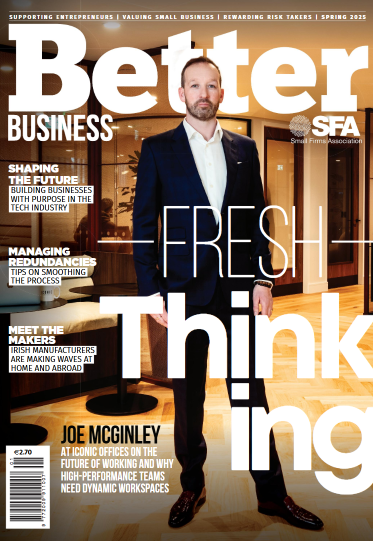Traditional bookshops are doing everything they can to fend off tough competition from online retailers and the growing popularity of audiobooks.
We’re a country revered for our rich literary heritage, from the scribes of the Book of Kells to the greats like Joyce, Yeats, Beckett, and far too many world-renowned contemporary authors of the 20th and 21st century to even begin to list here. From commercial fiction successes to prestigious literary prize winners, we punch above our weight when it comes to the written word.
Yet few of us spare a thought for the behind-the-scenes workings of the industry as we plough our way through our beach reads, picked up in the airport bookshop—and even less thought goes to the effect on the book industry of downloading that same book on an e-reader device.
However, for those involved in the book world – writers, agents, publishers, booksellers – the challenges of staying relevant and profitable in an increasingly digital world are never far from their minds.
Sheila O’Reilly returned home to Ireland to retire after spending years in London where she ran three bookshops. However, if anything she is now busier than ever, working as a project manager for the Booksellers Association learning platform, mentoring independent bookshops, judging literary prizes and launching a successful and well-received literary festival, Dingle Lit, in her adopted home in the Dingle Peninsula, Co Kerry (the festival is unique in that, set in the heart of the West Kerry Gaeltacht, it celebrates both Irish language and English language writing).
After decades in the business, O’Reilly has seen major changes unfold and is cognisant that selling books is a tough business. For even the shyest and most retiring of authors, public engagement through book launches and signings, literature festivals and social media are crucial to shift a few extra paperbacks.
And booksellers have to work extra hard too, with multiple demands on people’s attention, from podcasts and audiobooks, and online retailers, particularly Amazon pulling the rug out from under traditional bookshops: “I always see booksellers who run their own businesses as entrepreneurs; they have to be hugely driven,” O’Reilly says.
Publishing in Ireland
A quick overview of our indigenous book industry: Publishing houses in Ireland include large and well-established firms such as Gill Books, one of Ireland’s oldest (which today has a strong focus on celebrity authors, ranging from Blindboy Boatclub to Francis Brennan), to independent presses such as Tramp Press, which like many smaller endeavours is reliant on Arts Council grant funding to top up its coffers so it can nurture literary talents like Doireann Ní Ghriofa and Sara Baume.
Distributors and wholesalers – such as Gill’s distribution arm and Argosy – manage the warehousing and logistics side of things for publishers. What happens next is interesting for authors (and would-be authors, scribbling away in their garden sheds). It doesn’t take many sales to hit the bestseller list in Ireland; O’Reilly reckons 600 book sales on an average week could do the job. “You certainly won’t be buying a summer house in France on the proceeds,” she laughs.
However, not all sales count towards the bestseller list, only those bought from retailers who participate in the Nielsen BookScan tracking: she cites the town of Dingle as an example. There are four retail outlets where one can purchase a book in the town—Dingle Bookshop, An Café Liteartha, Garvey’s SuperValu, and Leac a’Ré gift shop—but only books bought through the Dingle Bookshop are counted in the ratings which determine the so-called bestsellers.
Two of the best-known operators in the market are Irish bookshop chains Eason and Dubray, although few consumers might recall that Eason acquired the former indie chain Dubray’s 11 shops in 2020 – but in a tough market, facing down increasing competition, there may be strength in numbers, adding to the 54 shops already trading under the Eason brand.
In a letter sent to shareholders in September 2023, Eason chairman David Dilger said the Government’s free primary schoolbooks scheme had a “very negative impact” on the firm’s business to the tune of a €2.5 million hit to its revenue.
Now, along with every other bookseller in the country, they face added competition from Amazon’s promise to launch a new dedicated website for Ireland in 2025. Commenting on the pressure this will place on indie retailers, Sarah Kenny, of the iconic family-owned Kenny’s bookshop in Galway, told The Irish Times in May that, “There is a great fear that this will have a massive impact on small and medium businesses across the country on the high street,” noting that when Amazon came to the US, there were approximately 5,500 independent book shops across the United States and now there are less than 2,000.
It’s hard to compete with convenience. “Someone’s sitting at home reading a review, and they can either go into town over the following days, or they can order it online and have it the next day. That’s going to be really challenging,” says O’Reilly. “Booksellers are going to have to make themselves essential parts of their communities, and that’s really hard.”
Bookshops Fight Back
Her own strategy, when she was running her shops, was to run events to bring in a crowd, creating a memorable and personal experience by giving people a chance to get up close and personal with their favourite authors.
“You would get people coming in for events because they love hearing the authors read and knowing more about the books; it feels like a little bit of insider information.” Also, she points out, people do like to buy copies of a book signed by the author.
However, it isn’t necessarily a money-making endeavour, more of a branding exercise—“People would think of us when they go to buy a book, and start coming in regularly.”
Another opportunity O’Reilly sees for indie booksellers to carve out some more sales is by taking a leaf out of Amazon’s book and taking pre-orders. “Most of the big titles for this year have been announced now—for example Johhny Sexton’s forthcoming autobiography is going to be huge and if bookshops took advance orders for that they could guarantee lots of sales.”
According to the American Booksellers Association, pre-orders account for up to 30% of overall sales, which indicates that many sales are occurring before the book even arrives to stores, and authors frequently shout out to their followers on social media asking them to pre-order their books, hoping for a first week hit in the bestseller lists. Bookshops are missing out.
So if you’ve been dreaming of packing in your job and writing a bestseller, can you actually make a living from it? If you hit the lofty heights of the Irish bestseller lists, you might be able to afford a bottle of Champagne to celebrate, but you’ll definitely be keeping on the nine to five, says O’Reilly. However, if you sell the rights abroad to larger foreign markets, or get it optioned for a movie, maybe then you can start looking at those property listings in Provence…
Dingle Literary Festival takes place from 15-17 November. For more information see dinglelit.ie




